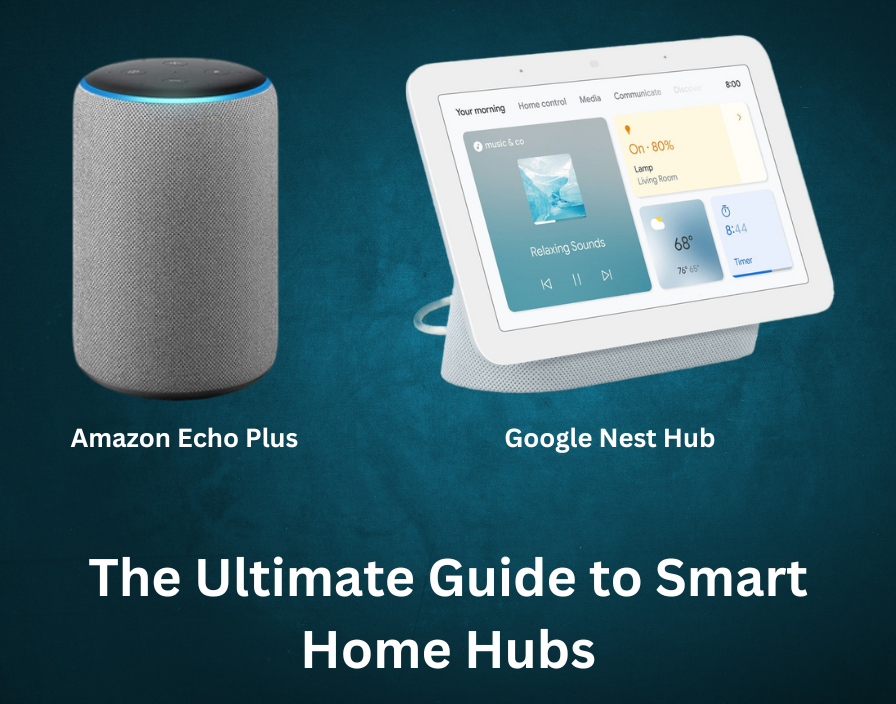The Ultimate Guide to Smart Home Hubs

In recent years, the concept of the smart home has gained tremendous popularity, revolutionizing the way we interact with our living spaces. At the heart of this technological transformation lies the smart home hub—a central control system that connects and manages various smart devices within your home. In this comprehensive guide, we will delve into the world of smart home hubs, exploring their benefits, features, and how they can enhance your everyday life.
Understanding Smart Home Hubs:
1.1 What is a Smart Home Hub?
A smart home hub serves as the brain of your connected home ecosystem, acting as a central control panel that coordinates and manages all the interconnected devices. It allows you to control and automate various aspects of your home, such as lighting, security systems, climate control, entertainment systems, and more.
1.2 The Role of a Smart Home Hub:
The primary role of a smart home hub is to facilitate communication and integration between different smart devices. It acts as a bridge, enabling seamless connectivity and control over a wide range of devices from a single interface.
1.3 How Smart Home Hubs Work:
Smart home hubs utilize various communication protocols like Wi-Fi, Bluetooth, Zigbee, and Z-Wave to establish connections with compatible smart devices. They receive commands from the user, process the information, and transmit the instructions to the respective devices, enabling remote control and automation.
Benefits of Smart Home Hubs:
2.1 Centralized Control:
One of the key advantages of smart home hubs is the ability to control multiple devices from a single interface. Whether it's adjusting the thermostat, dimming the lights, or locking the doors, you can manage all your smart devices conveniently and efficiently.
2.2 Automation and Convenience:
Smart home hubs enable automation by creating customized routines and schedules. For instance, you can program your hub to turn off all the lights at bedtime or adjust the temperature based on your preferences. This automation enhances convenience and can save you time and energy in the long run.
2.3 Enhanced Energy Efficiency:
With a smart home hub, you can optimize your energy usage by monitoring and controlling devices more efficiently. For example, you can ensure that lights and appliances are turned off when not in use, resulting in reduced energy consumption and lower utility bills.
2.4 Improved Security:
Smart home hubs integrate security devices like cameras, motion sensors, and smart locks, providing comprehensive home security solutions. You can receive real-time notifications and remotely monitor your home's security status, enhancing peace of mind and protecting your loved ones.
2.5 Seamless Integration and Compatibility:
A smart home hub acts as a universal translator, enabling different smart devices to communicate and work together harmoniously. It supports various communication protocols, ensuring compatibility with a wide range of devices from different manufacturers.
Key Features to Consider:
3.1 Voice Control:
Many smart home hubs are compatible with voice assistants such as Amazon Alexa, Google Assistant, or Apple Siri, allowing you to control your devices using voice commands.
3.2 App-Based Control:
Most smart home hubs come with dedicated mobile applications that provide intuitive interfaces for controlling and managing your smart devices remotely.
3.3 Compatibility:
Ensure that the smart home hub supports the devices you already own or plan to integrate into your smart home system. Look for compatibility with popular smart home device manufacturers and communication protocols.
3.4 Expandability:
Consider the scalability of the smart home hub. As your smart home grows, you might want to add more devices and functionalities. Choose a hub that allows for easy expansion and integration with new technologies.
3.5 Security and Privacy:
Prioritize a hub that prioritizes your data security and privacy. Look for features such as encryption, two-factor authentication, and regular firmware updates to ensure your personal information remains protected.
Popular Smart Home Hubs:
4.1 Amazon Echo Plus:
Powered by Alexa, the Echo Plus offers a comprehensive smart home hub experience, allowing voice control over a wide range of devices and seamless integration with Amazon's ecosystem.
4.2 Google Nest Hub:
Built around Google Assistant, the Nest Hub combines a smart display with hub functionality, providing visual feedback and control over your connected devices.
4.3 Samsung SmartThings Hub:
The SmartThings Hub supports multiple communication protocols, making it compatible with various smart devices. It offers a user-friendly interface and supports automation through the SmartThings app.
4.4 Apple HomePod:
Apple's HomePod, powered by Siri, integrates with HomeKit, enabling control of compatible smart devices through voice commands or the Home app.
Setting up a Smart Home Hub:
5.1 Choose the Right Hub:
Based on your needs and the devices you plan to integrate into your smart home system, select a hub that aligns with your specific requirements.
5.2 Physical Setup and Network Connection:
Follow the manufacturer's instructions to set up the hub physically and connect it to your home network.
5.3 Companion App Installation and Device Configuration:
Install the hub's companion app on your smartphone or tablet and follow the on-screeninstructions to connect and configure your devices.
5.4 Customization and Exploring Features:
Customize your hub's settings, create automation routines, and explore the various features and integrations available. Familiarize yourself with the capabilities of your smart home hub to make the most out of its functionalities.
Conclusion:
With the rapid advancement of smart home technology, smart home hubs have become indispensable tools for managing and controlling our connected devices. By centralizing control, providing automation capabilities, and enhancing security, these hubs transform our homes into efficient, convenient, and secure environments. Choose a hub that aligns with your specific needs and preferences, and embark on the journey of creating a smart home that simplifies and enriches your everyday life. Embrace the power of smart home hubs and unlock the full potential of your connected home.




